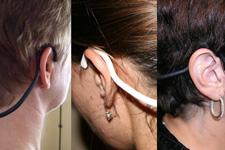SERVICES
RESEARCH
Our qualitative research uses a variety of proven research methods to reduce the risk of developing and marketing products that do not meet the intended market segment’s needs. Our approach provides a product and branding roadmap for our clients, integrating identified users’ wants and needs into products’ forms, features and branded messaging, increasing the perceived and real value of the products under development.
Our qualitative research uses a variety of proven research methods to reduce the risk of developing and marketing products that do not meet the intended market segment’s needs. Our approach provides a product and branding roadmap for our clients, integrating identified users’ wants and needs into products’ forms, features and branded messaging, increasing the perceived and real value of the products under development.
The Raytech research team works closely with our clients to establish a customized research and discovery process, focusing on stakeholders’ needs, perceptions and expectations for current and future products and services. Key stakeholders include end users, end user purchasing decision makers and influencers, retail purchasing and marketing agents, and others involved in the sales, distribution, and implementation process.
METHODS:
FIELD-BASED RESEARCH EXPERTISE:
+ Contextual Research (observational + experiential)
+ User-Centered Research (observational + interviews)
+ Usability Studies
+ Voice of Customer studies (single and multi-market)
+ Human Factors Evaluation
+ Focus Group Research
FACILITY-BASED RESEARCH EXPERTISE:
+ Segmentation Analysis
+ Image and Awareness Studies
+ Concept Testing and Evaluation
+ Focus Groups (stakeholder insight studies)
+ Product (and Concept) Evaluations
+ Market Penetration, Product Roll-out Strategy
+ Segment Scenario Building
+ Human Factors Evaluation
+ Usability Studies
Understanding and enhancing the user experience of targeted market segments during the product development process equips clients with a valuable set of market data and product development tools. This discovery process enhances the ability to build brand loyalty by providing a product roadmap, a trusted brand, and useful products based on stakeholder perceptions and experiences that have been identified during this research process.
This product roadmap enables clients to drive development programs based on strategic and tactical decision factors, increasing the success of new product launches, and providing product and marketing managers with the tools to address critical factors identified during the preliminary qualitative research process.
CONTEXTUAL RESEARCH
Contextual research is field-based research. While this research can take multiple forms, the resulting data is based on an over-arching objective – identifying actions, perceptions and resulting purchase decisions in context of an intended environment. This tool minimizes the interpretation of how... read more
USER-CENTERED RESEARCH
User-centered research is a type of contextual research. Unlike store intercepts or Voice of Customer studies, this process enables the development team to gain a greater understanding of the end-user’s interactions with and perceptions of technology, brands, and... read more
USABILITY STUDIES
To validate the design intent of a product, Raytech provides expertise in developing and conducting usability studies for our clients. These evaluative studies provide objective data to our clients on the effectiveness of the product design based the success of qualified user-participants... read more
VOICE OF CUSTOMER STUDIES
Often, the best way to identify perceptions of brand equity is to meet with and study brand-loyal customers in context of the environment that they make those decisions. In many cases these studies include customer shadowing, both pre-scheduled and as on-site intercepts... read more
HUMAN FACTORS EVALUATION
Raytech’s development team incorporates human factors research as a standard component of its product development programs. Human factors research and product evaluation relate to physical, environmental and... read more
FOCUS GROUPS






